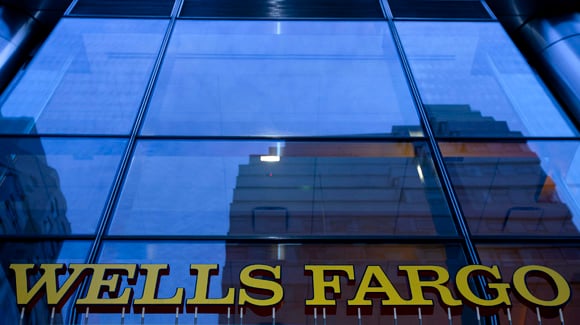Wells Fargo & Co. will pay up to settle criminal charges and civil claims for Wachovia Bank's conspiring to overcharge state and local governments on investments.
Wells Fargo & Co. agreed to pay $148 million to settle criminal charges and civil claims for conspiring to overcharge state and local governments on investments, becoming the fourth bank to enter a settlement in the case.
The deal will resolve investigations into Wachovia Bank, which Wells Fargo acquired in 2008, by federal agencies, including the Securities and Exchange Commission and the Justice Department as well as attorneys general in 26 states, the Justice Department said in a statement.
The case is the latest in a more than five-year investigation into how Wall Street banks conspired with local- government advisers to reap excessive fees on investments sold to public agencies by rigging competitive auctions and carving up the market among themselves. JPMorgan Chase & Co., UBS AG and Bank of America Corp. previously settled similar cases.
“Wachovia won bids by playing an elaborate game of ‘you scratch my back and I'll scratch yours,' rather than engaging in legitimate competition to win municipalities' business,” Robert Khuzami, the SEC's Division of Enforcement director, said in a statement.
The settlement by Wells Fargo will bring to $673 million the amount that banks have paid to settle the case, some of which is being returned to localities that were overcharged in the scheme.
Former Employees
Wells Fargo, based in San Francisco, said the conduct was by former employees of Wachovia before its acquisition. About $59 million from the settlement will go to state attorneys general, the bank said.
“Wells Fargo is pleased to have fully resolved this investigation of Wachovia Bank,” the bank said in a statement.
The federal investigation has exposed collusion among banks, insurance companies and advisers involved in municipal finance. The behavior illuminated by the conduct helped inspire new regulations being imposed on the previously unregulated advisory firms who help arrange financial transactions for public officials.
The charges are connected to investment contracts that states and cities bought with proceeds raised in the $3.7 trillion municipal-bond market, allowing them to earn a return until the cash is needed for public-works projects.
Such contracts, a type of derivative, were supposed to be awarded to banks that offered the highest return at competitive auctions arranged by financial advisers.
Fixing Auctions
U.S. investigators say advisers fixed the auctions to steer business to a favored bidder in return for kickbacks, with rival bankers sometimes submitting intentionally losing bids to help cover it up. That cost both the local governments and the U.S. Treasury, which is sometimes entitled to interest payments that governments make by investing municipal bond proceeds.
So far, the Justice Department said it has brought criminal charges against 18 former executives of financial-services firms, nine of whom have pleaded guilty. The department said it is continuing to investigate.
The SEC said Wachovia was involved in rigging at least 58 transactions over an eight-year span involving the proceeds of more than $9 billion of municipal bonds. Wachovia steered new business to brokers who participated in the conspiracy, the SEC said. Wells Fargo neither admitted nor denied the SEC allegations.
‘Ill-Gotten Gains'
The agency said it made “millions of dollars in ill-gotten gains” by acting on tips about rival bids, working with rivals to fix auctions in its favor and submitting sham bids for those deals arranged to benefit its competitors.
“The illegal conduct at Wachovia Bank corrupted the bidding practices for investment contracts and deprived municipalities of the competitive process to which they were entitled,” Sharis Pozen, acting assistant attorney general in charge of the Justice Department's Antitrust Division, said in a statement. “We are committed to ensuring competition in the financial markets, and our investigation into anticompetitive conduct in the municipal bond derivatives industry continues.”
The Justice Department said it agreed not to prosecute Wachovia because the bank admitted its illegal conduct, cooperated with the bid-rigging investigation and took steps to address anticompetitive conduct. The department also cited Wachovia's commitment to make restitution.
--Bloomberg News







